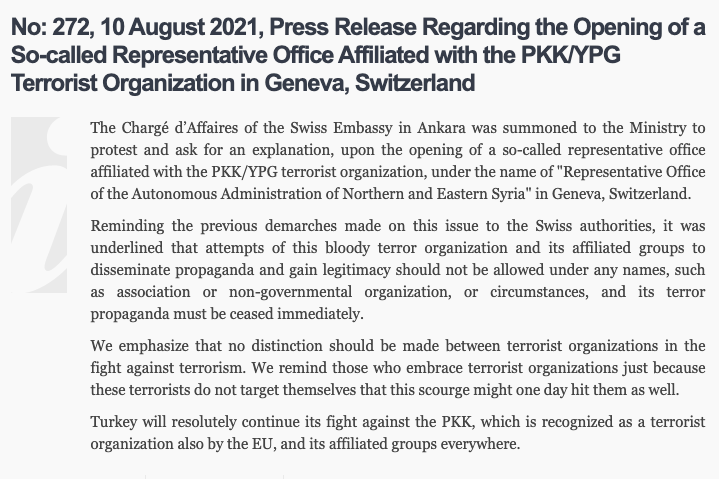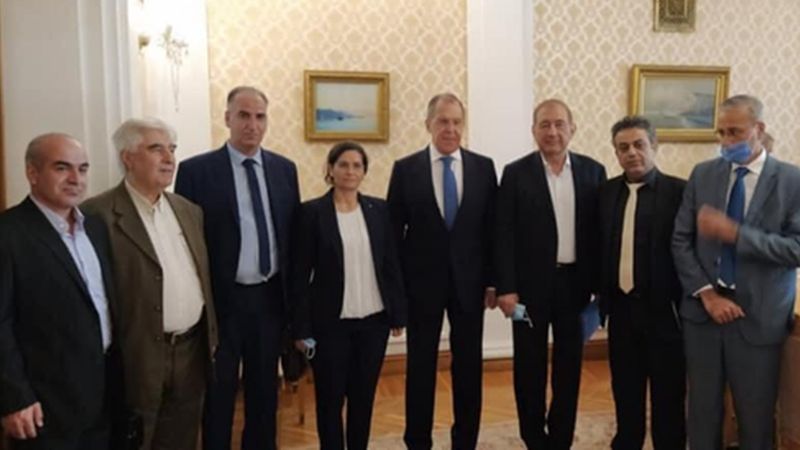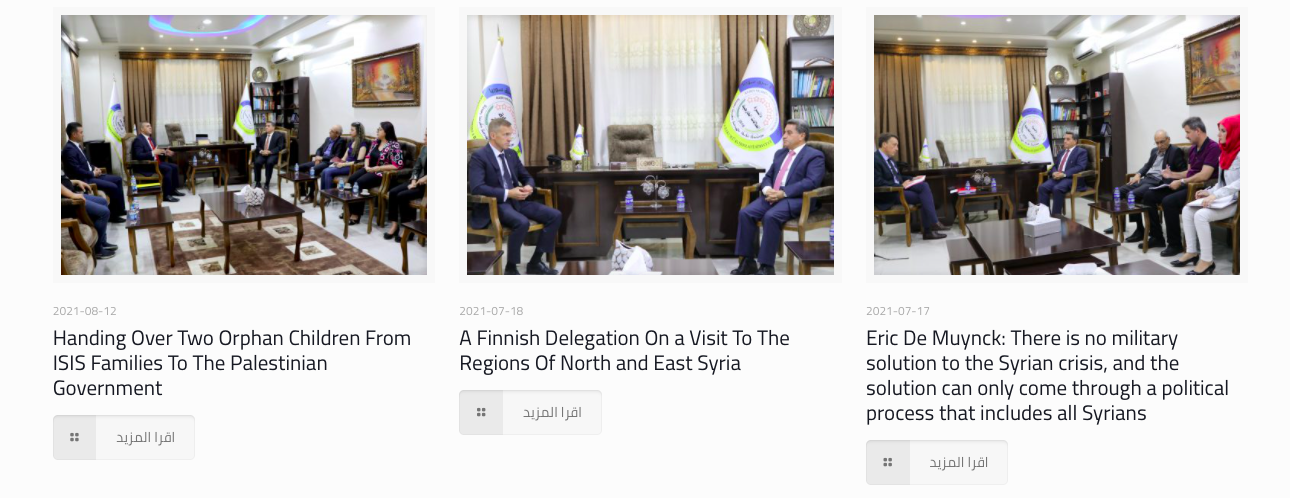Levent Kenez/Stockholm
The Turkish Foreign Ministry on Tuesday protested the opening of the Representative Office of the Autonomous Administration of North and East Syria in Geneva on the grounds that it is affiliated with the outlawed Kurdistan Workers’ Party (PKK) and summoned the chargé d’affaires of the Swiss Embassy in Ankara. A Nordic Monitor study shows that according to the situation and the country involved, Turkey behaves differently towards the activities of Syrian Kurds whom it claims are affiliated with the PKK in Europe.

The representative office in Geneva was opened by the Autonomous Administration of North and East Syria (AANES), also known as the Rojava administration, a de facto autonomous region in northeastern Syria that is not officially recognized by any state. AANES’s military wing is the Syrian Democratic Forces (SDF), led by the People’s Protection Units (YPG), a Kurdish militia group that Turkey says is the Syrian branch of the PKK. Turkey carried out four military operations in northern Syria between 2017 and 2019 and invaded some areas near the border. Turkey wanted to prevent the YPG from becoming a bigger threat to itself by getting stronger after the YPG achieved military success against the Islamic State in Iraq and Syria (ISIS, or Daesh), which is widely believed to have been supported by Turkey, and recaptured some Kurdish-populated cities.

AANES opened its first representative office in Moscow in February 2016 amid Russian-Turkish tensions after Turkey shot down a Russian fighter jet in November 2015. It was Russia’s political counterattack and a signal that Russia would be in contact with every party in Syria despite supporting the territorial integrity of the country. Turkey, which wanted to repair its relations with Russia, evinced no reaction at the time.
Similarly, last year representatives of the Rojava administration and some Syrian Kurdish politicians were invited to Moscow and received a high-level reception by officials including Foreign Minister Sergei Lavrov. In its official statement, Turkey only said it was concerned. However, during the visit, an important declaration was signed by the Kurdish politicians with the approval and knowledge of Russia, which emphasized that the autonomous administration of Rojava was a necessity for Syria, a situation Turkey would never accept.

Unlike Russia, the reaction to French President Emmanuel Macron, who met with the same Kurdish politicians last month, was much harsher. Turkish Foreign Affairs Ministry spokesperson Ambassador Tanju Bilgiç issued a statement saying that Turkey condemned Macron’s meeting with “members of the so-called ‘Syria Democratic Council’ led by the YPG/PYD [its affiliate the Democratic Union Party], the offshoot of the PKK terrorist organization in Syria.”
“Despite all our calls, ongoing relation of France with this separatist bloody-handed terrorist organization and its affiliates undermines Turkey’s national security as well as the efforts to ensure regional stability and to preserve political unity and territorial integrity of Syria.” the statement reads.
However, in 2016 the Rojava administration opened a representative office in Paris, and Turkey had no public reaction. Likewise, the Rojava administration has representations in Berlin, Stockholm and Amsterdam. Turkey, which summoned the Swiss ambassador to the ministry, did not take similar action for the French, German or Swedish ambassadors for the opening of representative offices in those countries. Foreign Minister Mevlüt Çavuşoğlu once mentioned in a speech in parliament that Turkey had conveyed its discomfort to its Dutch counterparts through the Turkish Embassy in The Hague.

In 2019 former US President Donald Trump warned Turkish President Recep Tayyip Erdoğan in a letter regarding Turkey’s incursion into Syria with words such as “Don’t be a tough guy” and “Don’t be a fool!” The president also referred to Mazloum Kobani Abdi, the head of YPG forces in Syria, as “General” and said Kobani was willing to negotiate and to make some concessions. Moreover, he said he had confidentially enclosed a copy of a letter Kobani had sent him. The letter sparked harsh criticism from the opposition, which claimed Turkey had been insulted. Shortly afterwards, Erdoğan, who was criticized for not returning the letter as soon as he received it, visited Trump at the White House, an indication that the letter did not cause a diplomatic crisis. Turkey recently summoned the Swedish ambassador to condemn an online meeting between some Swedish ministers and Kobani on April 20.
Turkey and Switzerland are two countries that experience frequent diplomatic crises. Swiss counter-espionage investigators caught agents of the Turkish National Intelligence Organization (MİT) in the act as they were planning to abduct a Swiss-Turkish businessman who was critical of the government of President Erdoğan in 2016, Nordic Monitor reported. In 2018 the Swiss attorney general launched a criminal inquiry into spying on Switzerland’s Turkish community by Turkish diplomats. The Swiss foreign ministry confirmed that the accusations outlined in the criminal proceedings were not diplomatic tasks and that therefore the people concerned could not avail themselves of immunity. Two of them had to leave Switzerland as a result of the investigation. In June 2018 the Office of the Attorney General of Switzerland issued arrest warrants for the two Turkish diplomats and said they would be arrested upon their entry into Switzerland.












